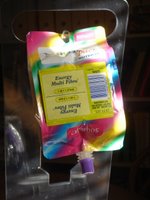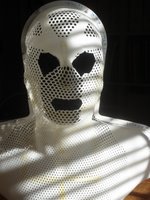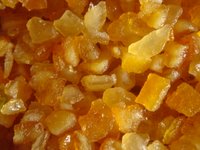Nil by mouth
 We are at the end of a month's stay in the Auvergne. Major is humming the MASH theme as he re-tiles the shower. This morning he serviced two chain-saws, changed the oil in the Land Rover, washed my dishes, mopped the kitchen floor, rinsed henna from my hair and up-loaded a few dozen CD's to the ipod whilst learning a foreign language. When the tiling's finished, he will saw and chop wood for the fire.
We are at the end of a month's stay in the Auvergne. Major is humming the MASH theme as he re-tiles the shower. This morning he serviced two chain-saws, changed the oil in the Land Rover, washed my dishes, mopped the kitchen floor, rinsed henna from my hair and up-loaded a few dozen CD's to the ipod whilst learning a foreign language. When the tiling's finished, he will saw and chop wood for the fire.The yellow pallor of one who frequents Charles Dickens Ward is gone, replaced by the more familiar hue of Ron-red, and hair has thickened where it had thinned ever so slightly at the edges. The skin, having burnt and peeled from the neck in such an alarming and seemingly irreparable way in October, now has the newborn, soft perfection for which any woman would rush to Harley St to trade her breast implants. Only a floppy turkey chin, the temporary result of a direct hit to the drainage system, remains as a visible testament to Major's battle, well, that and the skinniest little arms and legs you've ever seen. And the PEG, for he still isn't able to swallow.
The longest post-therapy, non-swallowing period he has found on the net is 7 weeks. It is now 12 weeks since his therapy ended, 16 weeks of not swallowing in total, but then what does the net know? The doctors are non-committal about how long he might yet have to rely on the PEG for survival.
My Mum makes the acquaintance of a head and neck cancer specialist and sounds out his opinion. He likens the treatment to the repeated pouring of boiling hot water down the throat, resulting in severe burning which takes a long time to heal, and he is not at all surprised that Major is not yet swallowing.
It feels as if we are without a manual. We thought for a while that the doctors might not have one either, that patient individuality must present lots of unknowns to them too, despite the numbers of people they treat, but lately we've come to the conclusion that they knew all along, and that not being able to eat or drink for months on end was too depressing a prospect for them to come clean about earlier.
Each morning Major tries a few sips of tea, "I'm really close, I can feel it", and lately he has drunk small mouthfuls of Badoit throughout the day. I feel the dryness of his lips and can only guess at the thirst his malfunctioning saliva glands cause to rage in his mouth.
He has been in pain this week, the most discomfort he has suffered since diagnosis and the first heavenly prescription of co-codomol and morphine. He fears the worst, naturally, and there are tears before bed. He resorts to swilling and spitting out the Badoit, stops the hourly swallowing
-progress tests and is kinder to himself with Brook's stretching exercises. The pain retreats.
My offers of thin soup and finely liquidised real food continue to be rejected; the PEG is his life-line, and the fear of blocking or damaging it is strong. There are substances besides NHS-provided Fortisip and Nutri-food, however, which Major does not consider to be a risk; green tea and crushed selenium tablets, self-prescribed anti-oxidants, are syringed for breakfast, after which, as brass-playing brothers know, there is "a drink for anytime of the day and night"; a red wine before pumped-lunch, an evening apero of Pastis, a whiskey night-cap... (I use the singular and specific times for style rather than accuracy.)
The PEG's tube, initially transparent, is now dark red. Major says it's the staining of the green tea, but green tea, by definition, is not red. I can't suppress my controlling disapproval and it overflows in a nagging reproach. He answers, "do you really want to deprive me of my only pleasure?". What can I say?









